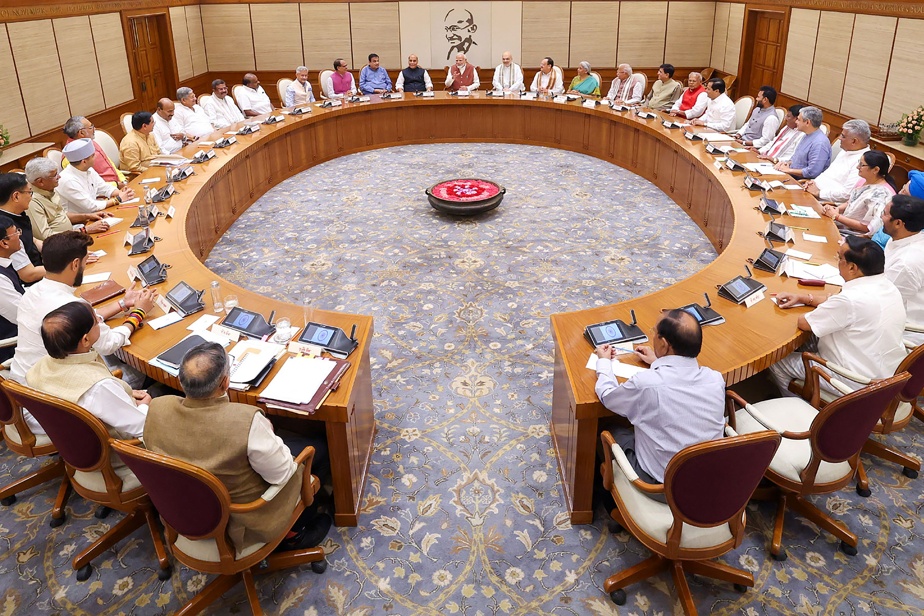(New Delhi) Indian Prime Minister Narendra Modi will have to change his Hindu nationalist program to accommodate his coalition partners, but should continue the course of his foreign and economic policy during his third term, analysts say.
Narendra Modi was forced to find allies to form a government after an election setback which caused his party to lose its absolute majority in Parliament for the first time in ten years.
The Prime Minister presented a new government on Monday, holding his ministers of Defense, Finance, Foreign Affairs and the Interior in their posts. His cabinet is still dominated by his party, the Bharatiya Janata Party (BJP).
“Modi opts for continuity,” headlined the Hindustan Times daily on Monday. “BJP and Modi remain firmly in the driver’s seat,” added the Times of India in its editorial.
This new mandate will nevertheless require “more dexterity in negotiations within Parliament for political measures that require changes to the laws”, underlines Ashok Malik, of the business consultancy The Asia Group.
Before the vote, minorities, including a large part of the Muslim community of more than 200 million, were worried about their future.
During his ten years in power, Narendra Modi cultivated an image as a champion of Hinduism, the majority religion in India.
His government revoked the constitutional autonomy of the Muslim region of Kashmir, and encouraged the construction of a vast Hindu temple on the site of an ancient mosque destroyed by Hindu fanatics in 1992 in Ayodhya.
Critics feared that a third landslide victory for the BJP would intensify pro-Hindu policies, despite India’s secular constitution.
But within the framework of a coalition, Narendra Modi will be forced to compromise, analysts note.
“In a government with partners, the BJP’s key cultural programs will all be relegated to the background,” Nistula Hebbar, political journalist for The Hindu newspaper, told AFP.
Narendra Modi should focus on his infrastructure projects, foreign affairs and economic reforms which “won’t be a big problem” for the alliance, she believes.
It should be different, particularly for the Common Civil Code promised by Mr. Modi in order to standardize laws for all religious communities, a reform seen as an attack by some Muslims.
India’s 1.4 billion people are subject to common criminal law, but civil rules governing marriage, divorce and inheritance vary between communities.
For this reform, the parties would need to “forge a national consensus”, according to Mr. Malik, which is not assured at present.
While Mr. Modi has been accused of stoking the Muslim-Hindu divide to curry favor with the Hindu electorate, “Hindu-Muslim rhetoric may also take a back seat, at least for now,” after the elections speculates Neerja Choudhury, of the daily The Indian Express.
BJP leaders also campaigned on removing affirmative action quotas for Muslims in public jobs and education.
Ms. Hebbar says she expects “a different Modi, a more conciliatory Modi.”
The prime minister should encourage the payment of social assistance to farmers and the poorest, in order to strengthen his popularity in rural regions after his electoral setback, according to analysts.
In a symbolic gesture to begin his mandate, Mr. Modi on Monday approved the final tranche of massive financial aid for 93 million farmers, and the construction of 30 million homes for poor families.
If his government has worked for the economic development of India, which has become the fifth largest economy in the world, the most populous country on the planet is faced with high unemployment, which could have weighed on the election.
“People want jobs,” Mr. Malik emphasizes. “And to satisfy this very legitimate need, we need to build an economy and reform even faster.”
Mr. Modi should prioritize infrastructure, industrial policy reform and incentives for domestic production with the aim of creating “economic momentum over the next five years,” he adds.




